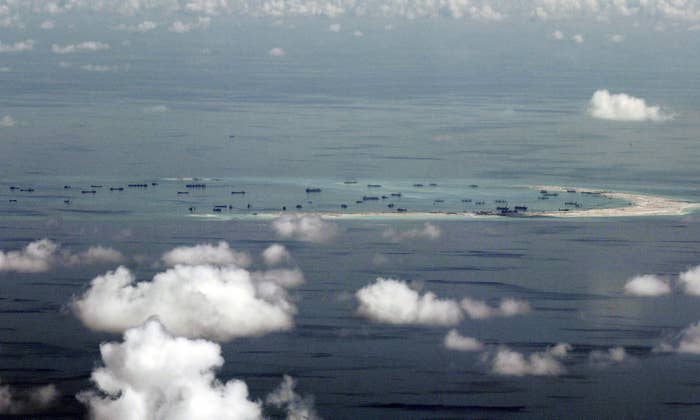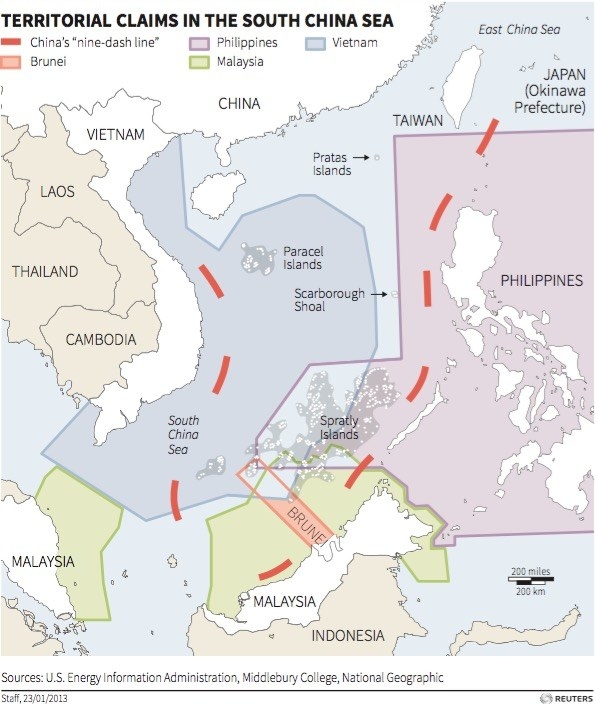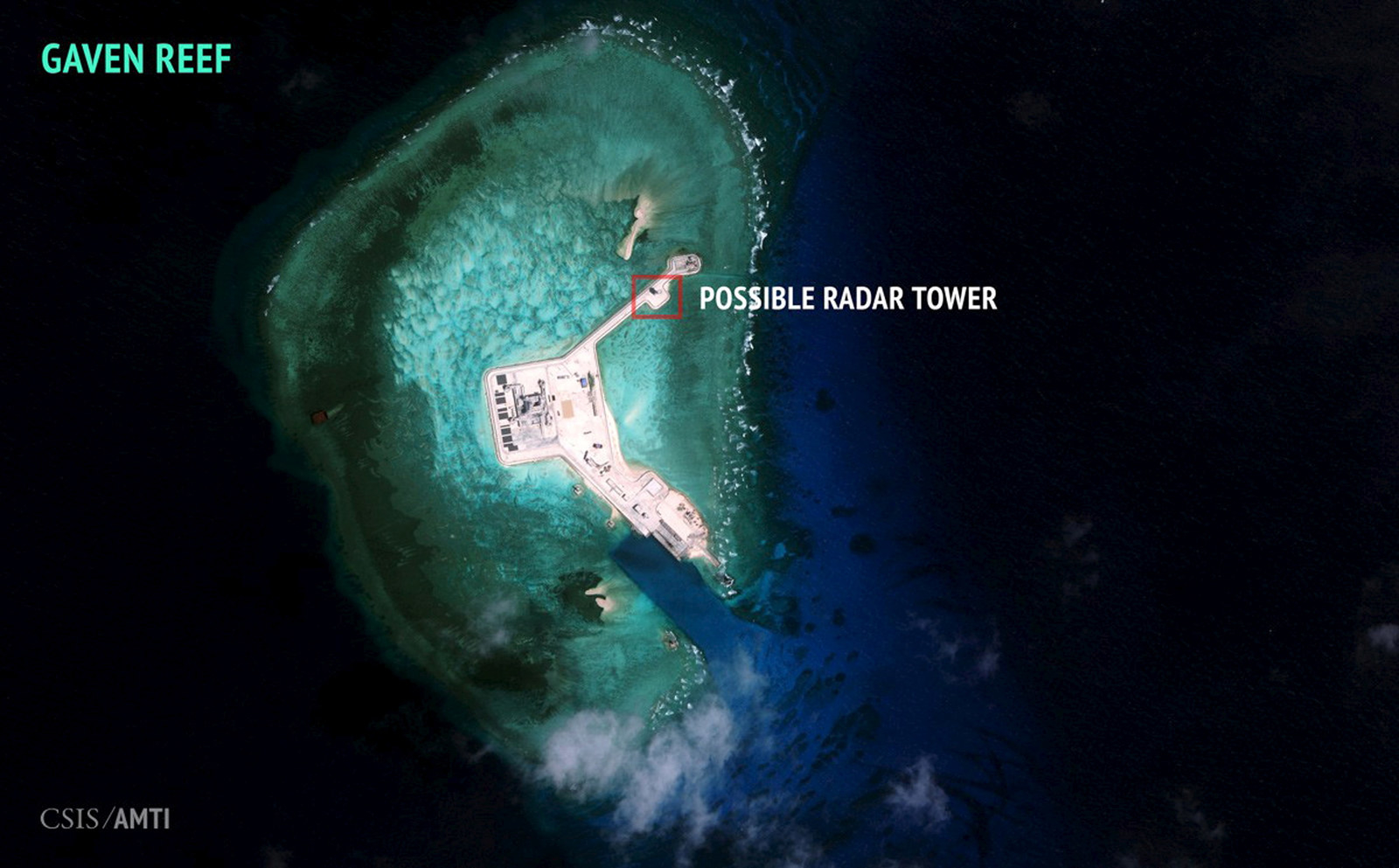China has lost a key international ruling to the Philippines on Monday after a landmark ruling against its claim over disputed territorial waters in the South China Sea.

The ruling, by the Permanent Court of Arbitration in The Hague, Netherlands, declared that China's claim of historic rights to resources within the waters was "incompatible" with international law.
The decision is considered significant because it is the first time the decadeslong dispute has been ruled on in an international court of law — and will increase pressure on Beijing to scale back its rapid expansion in the region.

China has been increasingly forceful in asserting its ownership over vast parts of the sea over the past two decades, and took control of Mischief Reef in the contested Spratly Islands in 1995.
However, its initial claim over the waters dates back to 1947 — the Chinese government demarcation used an "11-dash line" over the waters, which was later reduced to the current "nine-dash line," excluding the Gulf of Tonkin in 1953.

The waters falling within this line also include those territorially claimed by Brunei, Malaysia, Vietnam, Taiwan, Japan, and the Philippines.
The disputed area of the South China Sea is considered a significant stretch of water. It is rich with resources such as oil and natural gas, accounts for 12% of the world's total fishing catch, and is home to vital shipping routes that see $5 trillion in trade — one-third of the world's commerce — pass through it.
In recent years, Chinese vessels have been used to dredge sand to create artificial reefs and islands alongside tiny atolls and airstrips and naval facilities have been constructed in the area as Beijing has sought to bolster its territorial claim.

The U.S. has been a vocal opponent of China's actions, and has increased its own military presence in the South China Sea as a result.
Monday's ruling stated that China's actions had interfered with the Philippines' traditional fishing rights and had caused environmental damage in their expansion.
Beyond political side of ruling, worth noting tribunal also found China caused severe damage to S China Sea's precious coral reefs
It also ruled that the natural state of some of the physical territory China has attempted to declare sovereignty over is classified as rocks and not islands — meaning China cannot claim a 200-mile exclusive economic zone within them.

But China boycotted the proceedings in the Hague, and has long vowed to ignore the ruling and defend its claims to sovereignty in the waters militarily, Reuters reported.
Chinese state media reacted angrily to the ruling — both the People's Daily and Xinhua described it as "law-abusing" and "ill-founded."
#BREAKING: Law-abusing tribunal issues ill-founded award on #SouthChinaSea arbitration Tue
Prior to the decision, China's Defense Ministry released a statement in Chinese and English that said Beijing would continue to "safeguard" its interests in the waters, according to Reuters.
"No matter what kind of ruling is to be made," the statement said, "Chinese armed forces will firmly safeguard national sovereignty, security and maritime interests and rights, firmly uphold regional peace and stability, and deal with all kinds of threats and challenges."
